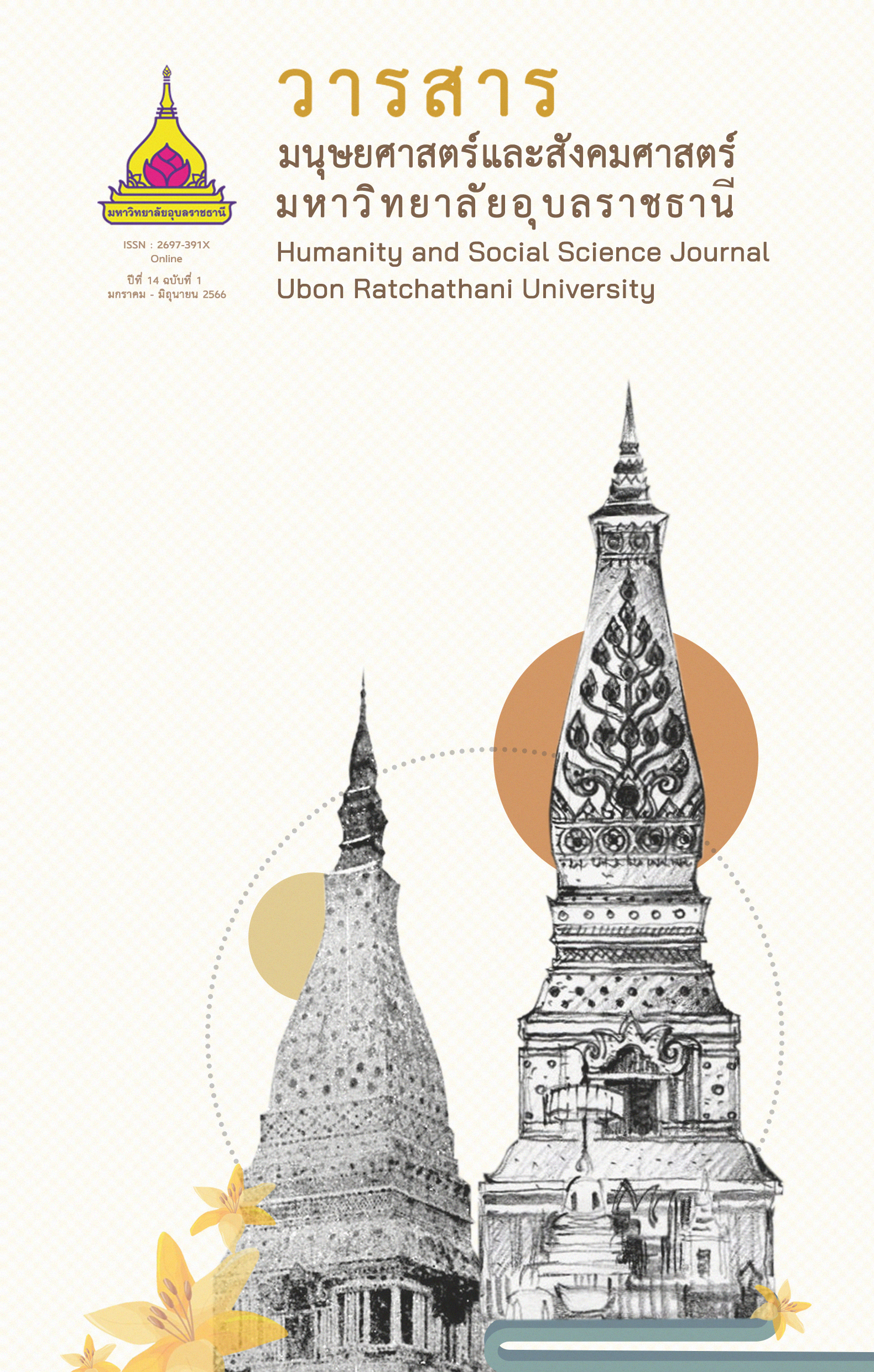อิทธิพลของแรงจูงใจและการรับรู้องค์ประกอบการท่องเที่ยว ที่ส่งผลต่อความพึงพอใจในการท่องเที่ยวเชิงสุขภาพของ นักท่องเที่ยวชาวไทยในจังหวัดภูเก็ต
Main Article Content
บทคัดย่อ
การวิจัยมีวัตถุประสงค์เพื่อศึกษา 1) แรงจูงใจที่มีอิทธิพลต่อความพึงพอใจในการท่องเที่ยวเชิงสุขภาพของนักท่องเที่ยวชาวไทยในจังหวัดภูเก็ต และ2) การรับรู้องค์ประกอบการท่องเที่ยวที่มีอิทธิพลต่อความพึงพอใจในการท่องเที่ยวเชิงสุขภาพของนักท่องเที่ยวชาวไทยในจังหวัดภูเก็ต กลุ่มตัวอย่างจำนวน 420 คน ด้วยวิธีการสุ่มแบบบังเอิญ สถิติในการวิเคราะห์ ได้แก่ ค่าความถี่ ค่าร้อยละ ค่าเฉลี่ย ส่วนเบี่ยงเบนมาตรฐาน และการวิเคราะห์ถดถอยเชิงพหุคูณ ผลการวิจัยพบว่า 1) แรงจูงใจการท่องเที่ยวมีอิทธิพลต่อความพึงพอใจในการท่องเที่ยวเชิงสุขภาพของนักท่องเที่ยวชาวไทยในจังหวัดภูเก็ต อย่างมีนัยสำคัญทางสถิติที่ระดับ .05 ได้แก่ ปัจจัยผลักดัน (Beta=.487) ปัจจัยดึงดูด (Beta=.315) ทำนายตัวแปรตามได้ร้อยละ 54 2) การรับรู้องค์ประกอบการท่องเที่ยวมีอิทธิพลต่อความพึงพอใจในการท่องเที่ยวเชิงสุขภาพของนักท่องเที่ยวชาวไทยในจังหวัดภูเก็ต อย่างมีนัยสำคัญทางสถิติที่ระดับ .05 ได้แก่ กิจกรรมการท่องเที่ยว (Beta=.445) ที่พักแรม (Beta=.216) การเข้าถึงแหล่งท่องเที่ยว (Beta=.190) สิ่งอำนวยความสะดวก (Beta=.102) ทำนายตัวแปรตามได้ร้อยละ 61.9
Article Details

อนุญาตภายใต้เงื่อนไข Creative Commons Attribution-NonCommercial-NoDerivatives 4.0 International License.
บทความที่ได้รับการตีพิมพ์เป็นลิขสิทธิ์ของวารสารมนุษยศาสตร์และสังคมศาสตร์ มหาวิทยาลัยอุบลราชธานี
ข้อความที่ปรากฏในบทความแต่ละเรื่องในวารสารวิชาการเล่มนี้เป็นความคิดเห็นส่วนตัวของผู้เขียนแต่ละท่านไม่เกี่ยวข้องกับมหาวิทยาลัยอุบลราชธานี และคณาจารย์ท่านอื่นๆในมหาวิทยาลัยฯ แต่อย่างใด ความรับผิดชอบองค์ประกอบทั้งหมดของบทความแต่ละเรื่องเป็นของผู้เขียนแต่ละท่าน หากมีความผิดพลาดใดๆ ผู้เขียนแต่ละท่านจะรับผิดชอบบทความของตนเองแต่ผู้เดียว
เอกสารอ้างอิง
Accesstrade. (2020). Health tourism after COVID-19. https://accesstrade.in.th/ การท่องเที่ยวเชิงสุขภาพ. (in Thai)
Aday, L.N. & Andersen, R. (1978). Theoretical and Methodelogical issues in Socialogical studies of consumer satisfaction with medical care, Social Science and Medicine. 12, 28.
Black, K. (2006). Business statistics for contemporary decision marking. (4th ed.). USA: John Wiley & Sons. pp. 585.
Boonkoum, W. (2017). Motivations of Thai tourists in visiting important temples in Phetchaburi and their perceptions affecting the revisitation [Master’s Thesis, Dhurakij Pundit University]. (in Thai)
Buhalis, D. (2000). Marketing the competitive destination of the future. Tourism management, 21, 97-116.
Chatchawanchanchanakij., et al. (2021). Influence of tourism components on health tourism image in Thailand. Journal of Interdisciplinary Research, 10(2), 1-8. (in Thai)
Chusri, W. & Lalitsasivimol, W. (2020). Health tourisms: Thailand’s competitiveness. Princess of Naradhiwas University Journal of Humanities and Social Sciences, 7(2), 205-226. (in Thai)
Department of Health service support. (2016). Thailand's development strategy as an international health center (MEDICAL HUB). https://hss.moph.go.th/fileupload/2560-102.pdf. (in Thai)
Dickman, C.R. (1996). Overview of the impacts of feral cats on Australian native fauna. Australian Nature Conservation Agency, Canberra.
Holloway, J. C. (1998). The business of tourism. Plymouth, Macdonald and Evens Ltd.
Hudman, L. E. (1980). Tourism: A shining world. Ohio: Grid.
In, Y.Y., et al. (2015). Effect of health and wellness values on festival visit motivation. Asia Pacific Journal of Tourism Research, 20(2), 152-170.
Jittangwatana, B. (2006). Sustainable tourism development. Bangkok: TAT academy.
Kotler, P. (2003). Marketing insights from A to Z: 80 concepts every manager needs to know. John Wiley & Sons.
Ministry of Tourism and Sports. (2020). Statistics of domestic tourists Q1-Q4 year2019 (southern region). https://www.mots.go.th/news/ category/618 (in Thai)
Nimboonjat, M. (2015). The tourism factor and participation of the community influencing the sustainability of eco-tourism at Khao San Nhok Whour (Khao Laem national park) [Master’s thesis]. Silpakorn University. (in Thai)
Nilsonthi, C. & Namwong, S. (2018). Motivation factors on wellness tourism influencing tourist satisfaction of spiritual retreat visitors. Dusit Thani college journal, 12(2), 384-403. (in Thai)
Otakanon, P. & Patomsirikul. Y. (2013). The model of service quality, destination image, and satisfaction influencing behavioral intention of European and American visitors in long stay tourism. Thammasat journals, 32(1), 35-56. (in Thai)
Prachachat Turakij. (2022, June 27). Phuket promotes Thai people to stimulate tourism income for 5 months near 30 billion baht. Prachachat Turakij online. https://www.prachachat.net/local-economy/news-965072. (in Thai)
Praditrod, C. (2016). Components of tourist attractions and tourism motivation affecting to working people’s decision making to travelling in vicinity areas. Graduate School, Bangkok University. (in Thai)
Pearce, P., Morrison, A. M., & Rutledge, J. L. (1998). Tourism: Bridges across continents. Sydney: McGraw - Hill.
Petchphanthong, R. (2017). The satisfaction of foreign tourists on SomdetPhraNarai National park in Lop Buri province [Master’s thesis, Dhurakij Pundit University]. (in Thai)
Poom a phinunt, P. & Weerakit, N. (2018). Behavior and motivation of Chinese wellness tourists in Phuket. Human Resource and Organization Development Journal, 10(2), 89-109. (in Thai)
Tourism Authority of Thailand. (2019). Action plan of the Tourism Authority of Thailand fiscal year 2019. https://api.tat.or.th/ upload/annual_report/live/แผนปฏิบัติการของ-ททท-ปี2562-ฉบับสมบูรณ์.pdf. (in Thai)
Travel compass. (2018). Travel for health when everyone wants to live longer. https://intelligencecenter.tat.or.th/articles/10612. (in Thai)
Vanichbuncha, K. (2006). Statistics for research. Bangkok: Chulalongkorn University. (in Thai)
Waseeweerasi, W. et al. (2015). The feasibility studying and models of health tourism management in Thamuang district, Kanchanaburi province, Thailand. EAU HERITAGE Journal Science and Technology, 9(2), 210-218. (in Thai)


